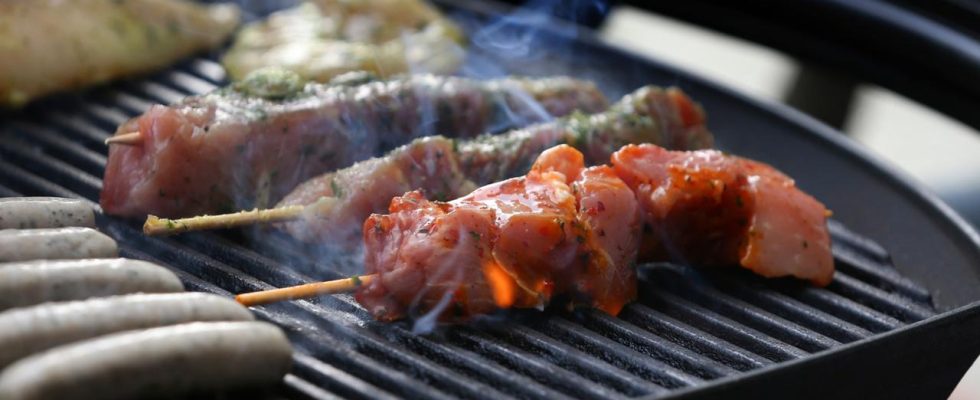analysis
The Agriculture Future Commission advocates a higher VAT on meat. The farmers’ association is also part of the committee – but there is now headwind from them. Today Chancellor Scholz invites you to a conversation.
Many consumers want more animal welfare in the stable. Politicians, farmers’ associations and animal rights activists have been struggling for a long time to figure out how to finance this. The situation is tricky. The debate surrounding a group of experts’ proposal to increase the VAT on meat shows how tricky it is.
In order for farmers to implement more animal welfare in their stables, they need money. Because to have significantly more space in the stable or access to the outside, stables have to be converted or even newly built. Several suggestions are being discussed.
The Agriculture Future Commission has now positioned itself. She supports an increase in the VAT on meat – from seven percent to 19 percent. This is based on a key points paper that… ARD capital studio is present. Specifically, for example, for a pack of bratwursts for four euros, this would mean a surcharge of almost 45 cents.
Headwind from the farmers’ association
However, the experts also write that this increase could happen gradually, as not much money is needed to convert animal husbandry at the beginning and the need for financing only increases slowly. In order to relieve the burden on consumers, the expert group could also imagine a “more comprehensive VAT reform”, “in which the tax rates on certain products could also be reduced”. For example, on vegetables and grain products, which then become cheaper.
But shortly after the key issues paper became known, there was headwind from the German Farmers’ Association. “We reject a VAT increase on the standard rate or an animal welfare cent,” says farmers’ association president Joachim Rukwied. He wants the money for animal welfare reform to come from the federal budget. That would be several billion a year. The fact that the federal government is responding to this demand is illusory given the strained budget situation.
The farmers’ association is a member of the Agriculture Future Commission, and a representative also sat on the working group on animal welfare restructuring. The President of the Nature Conservation Ring, Kai Niebert, who was also a member of the working group, emphasizes that there was a consensus: “That means, first we need security for the farmers that the conversion is secured in the long term. And then we have to ensure refinancing in the federal budget.”
Özdemir is open to higher VAT
The main demand is that the federal government should conclude long-term contracts with farmers and pay them an animal welfare premium. “Contracts are not needed for seven years, but for twenty years,” says Niebert. Nevertheless, the question remains where the money will come from.
According to the key points paper, the expert group supports the increase in VAT. This is the easiest to implement. Unlike a new meat tax, VAT does not have to be introduced first. It just needs to be adjusted.
Federal Agriculture Minister Cem Özdemir is open to increasing the VAT on meat. “But the prerequisite is that this path is also supported by German agriculture,” said the Green politician.
However, Özdemir seems annoyed that the farmers’ association rejects both a VAT increase and the introduction of a so-called animal welfare cent. “What is not possible is to reject every feasible proposal and not to present an alternative that can reach a consensus,” said the Green politician.
Conversation in the Chancellery
The Federal Minister of Agriculture originally wanted to introduce a so-called animal welfare cent and had already had a concept developed for this. Similar to the coffee tax, consumers would have had to pay a few cents more per kilo of meat. Since then, the paper has been with the Ministry of Finance, which is responsible for taxes, and has received little attention there because the FDP around Finance Minister Christian Lindner rejects the introduction of an additional meat tax as too bureaucratic.
Today the members of the Agriculture Future Commission are invited to a discussion in the Chancellery. No concrete results can be expected from the meeting with Chancellor Olaf Scholz because the key issues paper is not yet completely finished. But for this to happen, all members, including the farmers’ association, must first agree to the paper. So it remains tricky.


